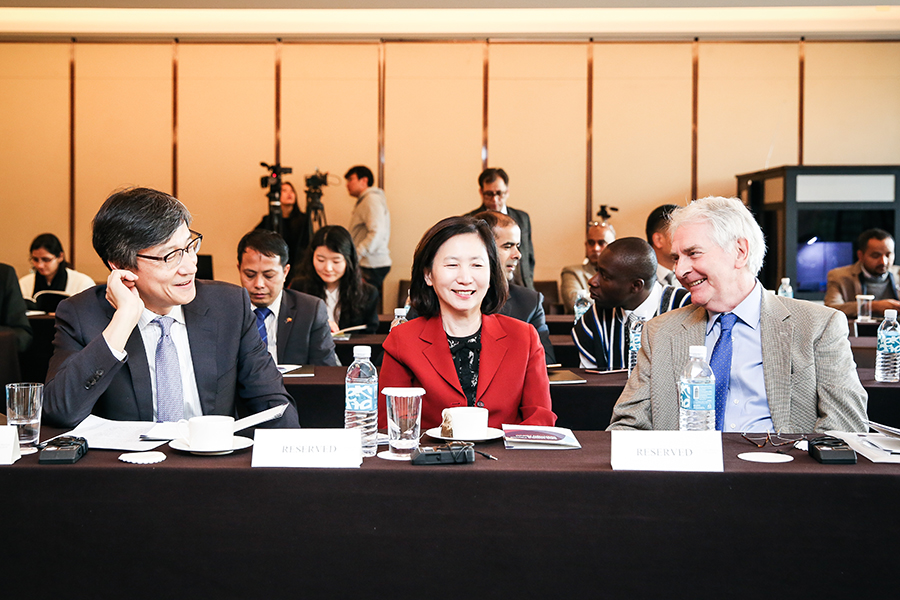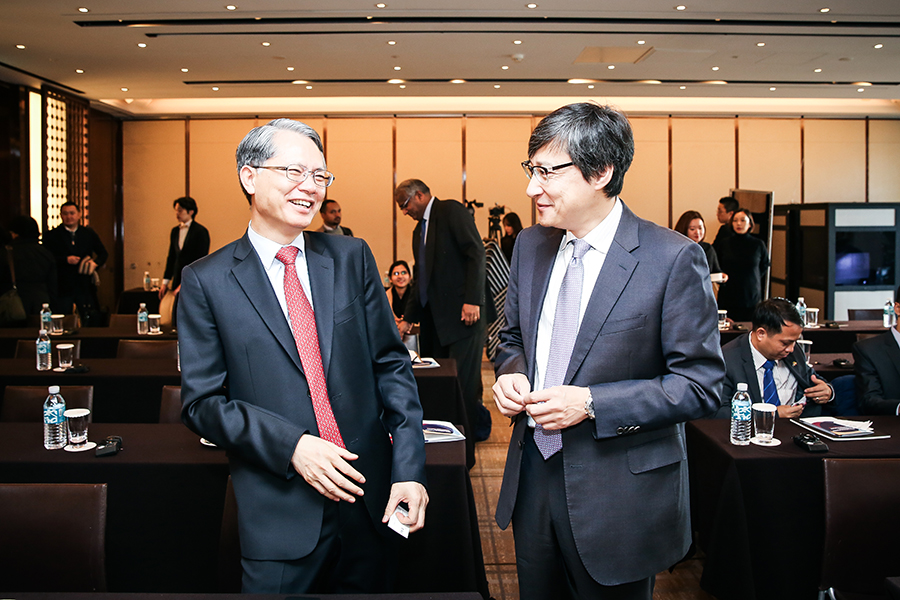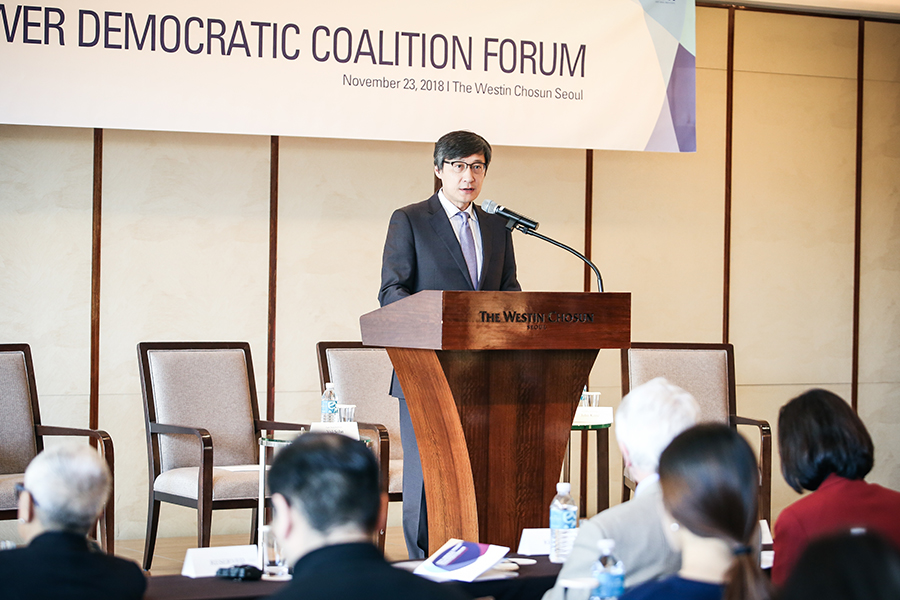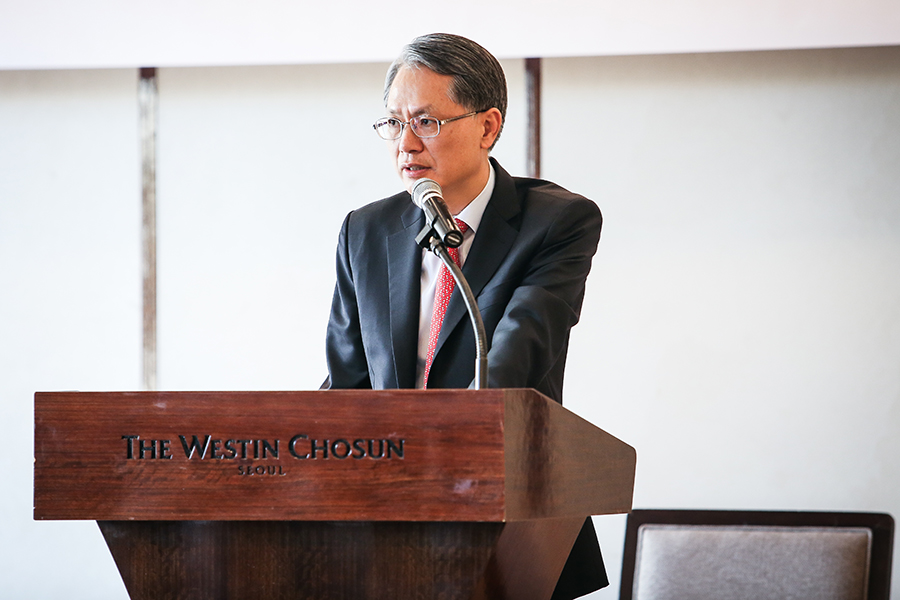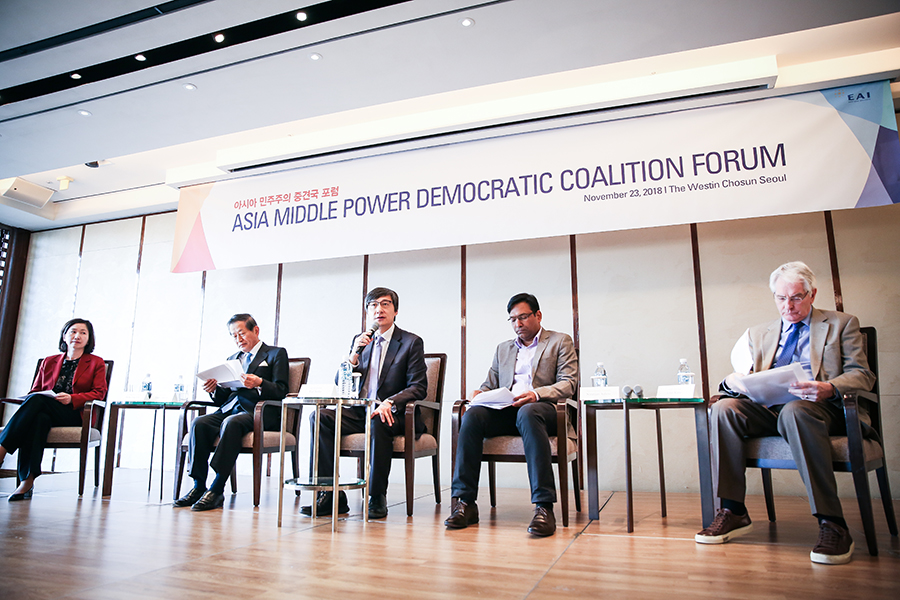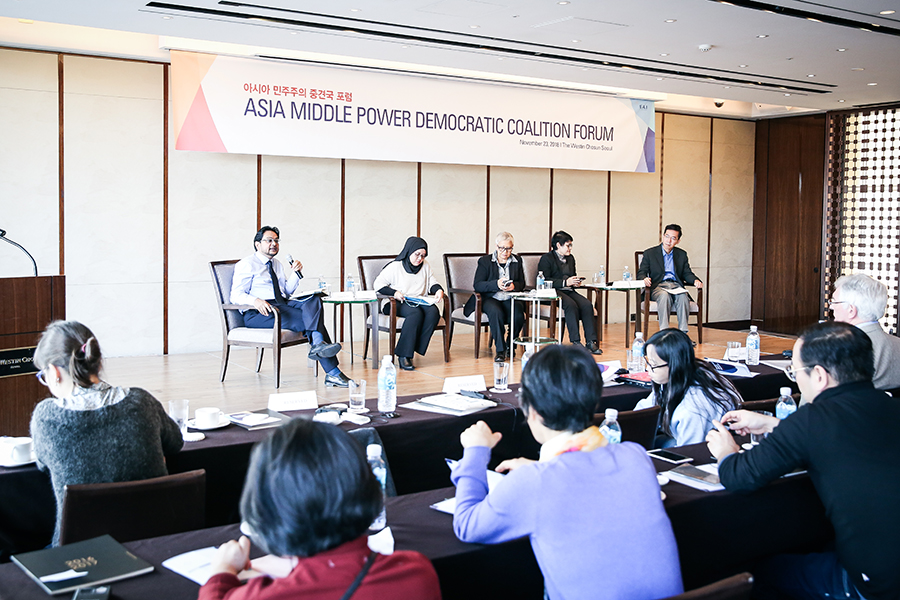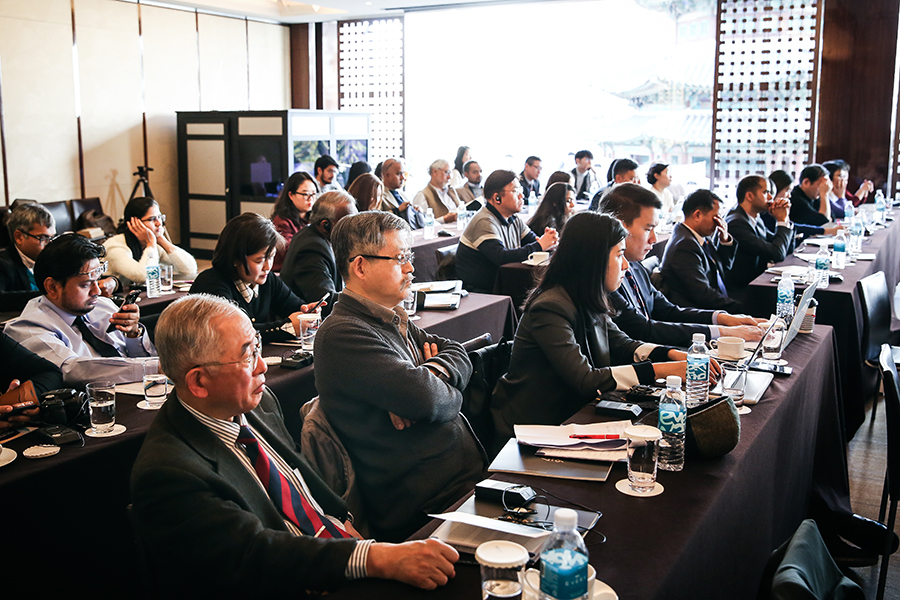Events
East Asia Institute (EAI) organized and hosted the Asia Middle Power Democracy Coalition Forum on November 23, 2018. This forum was organized to bring together a community of experts, civil society leaders, and policy influencers from consolidated democracies in the Asian region, including Australia, India, Japan, and South Korea. These group of experts interacted with like-minded experts and practitioners from fledgling democracies in the region to explore what these “democratic middle powers” can do to serve as role models for fledgling democracies in the region working to address democratic challenges.
Program
Thursday, November 22
| 5:00 p.m. – 6:30 p.m. | Pre-Dinner Discussion Populism in Other Countries The rise of populism and emergence of populist extremist leaders are not problems that are afflicting only Europe or the West. How does the rise of populism unfold in Asia? How do other experts from Asian countries in the region, such as Australia, India, and Japan, respond to the rise of populism in their own countries? What populist agendas/ideologies have been prevalent in your country? What caused this recent rise of populism? How do they interpret that phenomenon and its impact on their democracy? Panelists: Niranjan Sahoo, Senior Fellow, Observer Research Foundation (India) John Kane, Professor, Griffith University (Australia) Francisco Magno, Professor, Jesse M. Robredo Institute of Governance (Philippines) Moderator: Sook Jong Lee, Co-Representative, Asia Democracy Research Network (South Korea) |
| 6:30 p.m. – 8:00 p.m. | Welcoming Dinner |
Friday, November 23
| 8:30 a.m. – 9:00 a.m. | Registration and Coffee |
| 9:00 a.m. – 9:05 a.m. | Welcoming Remarks Yul Sohn, President, East Asia Institute (South Korea) |
| 9:05 a.m. – 9:20 a.m. | Keynote Speech Kang Jeong-sik, Deputy Minister for Multilateral and Global Affairs, Ministry of Foreign Affairs (South Korea) |
| 9:20 a.m. – 10:50 a.m. | Session One How Can Asian Middle Powers Promote Democracy Internationally? In traditional sense, middle power can be defined according to capabilities, function, and behavior. Middle power generally adopts an internationalist perspective and policy, participates in multilateral forums, leads in specific niche areas, and acts as a bridge among countries. The term “bridge” is a keyword in understanding the concept of middle power. A middle power acts as a bridge between a great power and a small power, playing the role of mediator when the two sides are at odds and of a channel for communication when there is a breakdown in dialogue. In this regard, what is the role and responsibility of middle power democracies in maintaining international rules and behaviors in Asia? With the rise of China and its offensive policy and relative decrease in the US presence and commitment in the region, what can we expect from the middle power democracies when defending and upholding democratic values, rule of law, and rules-based institutions? How can the middle power democracies generate and fine-tune lessons and strategies for addressing democratic deficits in fledgling democracies? What are strategies and action plans currently set in store in each respective country to deepen the quality of democracy? Panelists: Sook Jong Lee, Co-Representative, Asia Democracy Research Network (South Korea) Yukio Takasu, Former United Nations Under-Secretary-General for Management; Former President of the United Nations Security Council (Japan) Niranjan Sahoo, Senior Fellow, Observer Research Foundation (India) John Kane, Professor, Griffith University (Australia) Moderator: Yul Sohn, President, East Asia Institute (South Korea) |
| 10:50 a.m. – 11:05 a.m. | Coffee Break |
| 11:05 a.m. – 12:35 p.m. | Session Two Local Democratic Values and Prospect for Democratic Unity in Asia This moderated discussion will focus around the perspectives of fledgling democracies in order to define locally imbedded democratic values. Is it possible for these local democratic values to be able to drive democratic unity between fledgling democracies on one hand and the five Asian middle powers and the Western democracies on the other? If so, how should we go about facilitating such unity? Panelists: Nishan de Mel, Executive Director, Verite Research (Sri Lanka) Aira Azhari, Coordinator of Democracy and Governance Unit, Institute for Democracy and Economic Affairs (Malaysia) Thawilwadee Bureekul, Director of Research and Development Office, King Prajadhipok’s Institute (Thailand) Chin-en Wu, Associate Research Fellow, Academia Sinica (Taiwan) Moderator: Teresita Quintos Deles, Chairperson, INCITEGov (Philippines) |
| 12:35 p.m. – | Farewell Luncheon |
